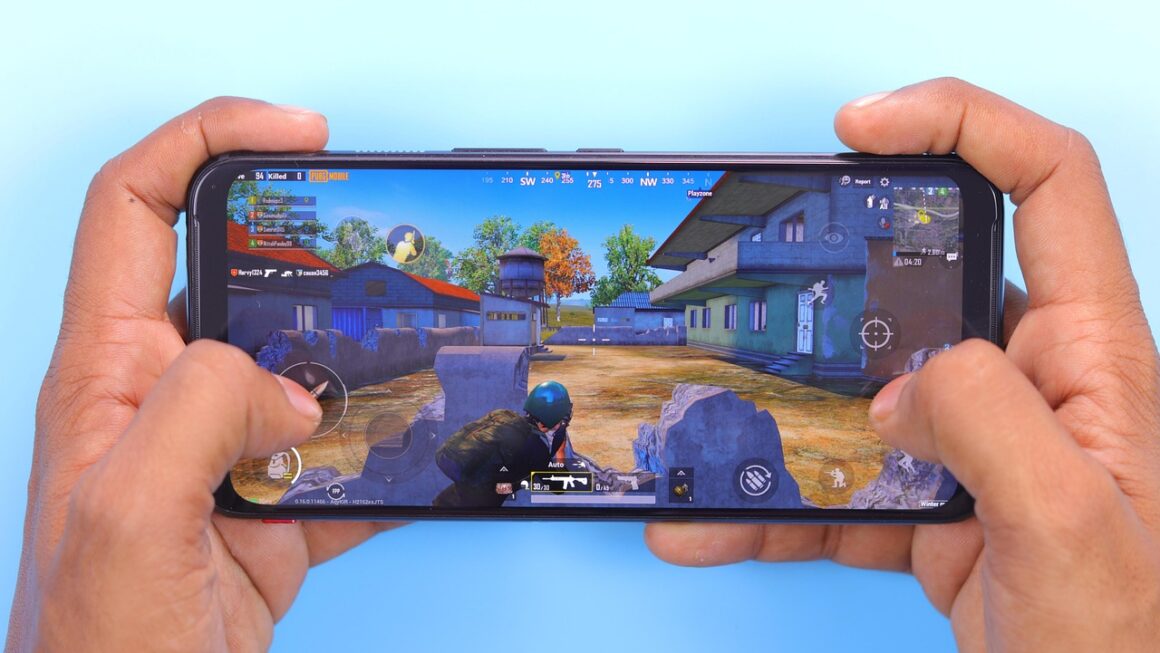Indie games. The very phrase conjures images of creativity, innovation, and passion poured into digital worlds. Stepping away from the established norms of AAA development, independent game developers chart their own course, often crafting experiences that are deeply personal, experimental, and unforgettable. But what exactly defines an “indie” game, and why should you, as a gamer or aspiring developer, care? Let’s dive into the vibrant world of independent game development.
What Exactly is an Indie Game?
Defining “indie game” isn’t as straightforward as it seems. It’s not simply about a small team size or a low budget, although those are common characteristics. The essence of an indie game lies in its independence – independence from major publishers and their creative control.
Independence and Creative Control
- Self-Funded or Crowdfunded: Indie games are typically financed by the developers themselves, through personal savings, crowdfunding platforms like Kickstarter, or through smaller, independent investors. This financial independence grants developers more control over the game’s design, mechanics, and narrative.
- No Publisher Interference: Unlike AAA games, indie games aren’t beholden to publisher mandates. Developers have the freedom to experiment with unconventional gameplay mechanics, explore mature themes, and target niche audiences.
- Unique Vision: At their core, indie games represent the unique vision of their creators. They often prioritize artistic expression and innovation over mass-market appeal.
Characteristics of Indie Games
While not all indie games share the same traits, many possess these common characteristics:
- Small Development Teams: Indie games are often created by small teams, sometimes even individuals, leading to a more intimate and collaborative development process.
- Lower Budgets: Compared to AAA titles, indie games typically operate on significantly smaller budgets, forcing developers to be resourceful and creative in their approach to development.
- Innovative Gameplay: Indie games are known for pushing boundaries and experimenting with new gameplay mechanics, genres, and art styles.
- Focus on Narrative: Many indie games place a strong emphasis on storytelling and character development, often exploring complex themes and emotions.
- Distinctive Art Style: Indie games often boast unique and memorable art styles, ranging from pixel art to hand-drawn visuals, that set them apart from mainstream games.
- Example: Stardew Valley, developed by a single person, Eric Barone (ConcernedApe), is a prime example of a successful indie game. He self-funded the project, retained complete creative control, and delivered a deeply engaging and charming farming simulator that resonated with millions.
Why Play Indie Games?
Stepping outside the realm of mainstream games offers a plethora of benefits for players seeking fresh and unique gaming experiences.
Discovering Unique Experiences
- Gameplay Innovation: Indie games are often at the forefront of gameplay innovation, introducing new mechanics, genres, and perspectives. You’re more likely to find truly original and experimental gameplay loops in indie titles than in larger, more risk-averse productions.
- Compelling Narratives: Many indie games prioritize storytelling, offering deeply moving, thought-provoking, and emotionally resonant narratives that explore complex themes and characters.
- Artistic Expression: Indie games are often works of art, showcasing unique and memorable art styles that reflect the developers’ creative vision.
- Support Independent Creators: By playing indie games, you’re directly supporting independent developers and helping them continue to create innovative and original experiences.
Expanding Your Gaming Horizons
- Exploring Niche Genres: Indie games often cater to niche genres and interests that are underserved by AAA titles. Whether you’re looking for a hardcore roguelike, a narrative-driven walking simulator, or a challenging platformer, you’re likely to find an indie game that scratches that itch.
- Fresh Perspectives: Indie games offer fresh perspectives on familiar genres, subverting expectations and challenging conventions.
- Lower Price Points: Indie games are typically more affordable than AAA titles, making them a great way to expand your gaming library without breaking the bank.
- Example: Hades, developed by Supergiant Games, is a roguelike that masterfully blends addictive gameplay with a compelling narrative, earning critical acclaim and a dedicated fanbase. Its innovative approach to the roguelike genre makes it a standout example of indie game excellence.
How to Find Indie Games
Discovering the next hidden gem can feel like an adventure in itself. Here are some tips to navigate the vast landscape of indie games:
Exploring Online Platforms
- Steam: Steam is the largest digital distribution platform for PC games and boasts a massive library of indie titles. Utilize Steam’s discovery features, such as curated lists, genre tags, and user reviews, to find games that match your interests.
- itch.io: itch.io is an open marketplace specifically designed for indie games. It features a wide variety of games, including experimental titles, game jams, and free-to-play projects.
- GOG.com: GOG.com (formerly Good Old Games) specializes in DRM-free games, including a growing selection of indie titles.
- Consoles: PlayStation, Xbox, and Nintendo consoles all feature robust digital storefronts with dedicated indie game sections.
Following Gaming Communities and Media
- Gaming Blogs and Websites: Follow gaming blogs and websites that specialize in indie game coverage. These outlets often highlight upcoming releases, review new games, and interview indie developers.
- YouTube and Twitch: Watch gaming YouTubers and Twitch streamers who focus on indie games. They can provide valuable insights, gameplay footage, and recommendations.
- Social Media: Follow indie developers and studios on social media platforms like Twitter and Discord. This is a great way to stay up-to-date on their latest projects and engage with the community.
Attending Gaming Events
- Indie Game Festivals: Attend indie game festivals like PAX East, IndieCade, and BitSummit. These events showcase the best and brightest indie games from around the world and offer opportunities to meet developers and try out new games.
- Tip: Don’t be afraid to venture outside your comfort zone and try games that you wouldn’t normally consider. You might be surprised by what you discover.
The Indie Game Development Landscape
For aspiring game developers, the indie scene offers a pathway to realizing their creative visions without the constraints of a major publisher.
Tools and Resources for Indie Developers
- Game Engines: Game engines like Unity and Unreal Engine are powerful and accessible tools that provide developers with the necessary frameworks for creating games. These engines offer a wide range of features, including visual scripting, asset management, and cross-platform support.
- Asset Stores: Asset stores like the Unity Asset Store and the Unreal Engine Marketplace offer a vast library of pre-made assets, including models, textures, sound effects, and scripts, that can significantly speed up the development process.
- Free and Open-Source Software: Free and open-source software (FOSS) like Blender (3D modeling), GIMP (image editing), and Audacity (audio editing) provide developers with cost-effective alternatives to commercial software.
- Online Communities: Online communities like the Unity Forums, Unreal Engine Forums, and Reddit’s r/gamedev provide developers with valuable support, advice, and feedback.
Challenges and Rewards of Indie Development
- Limited Resources: Indie developers often face challenges related to limited resources, including funding, manpower, and time.
- Marketing and Visibility: Marketing and gaining visibility for indie games can be challenging in a crowded marketplace.
- Creative Freedom: Despite the challenges, indie development offers unparalleled creative freedom, allowing developers to pursue their unique visions and create games that are truly their own.
- Personal Satisfaction: The personal satisfaction of creating a game from scratch and seeing it resonate with players is a powerful motivator for indie developers.
- Actionable Takeaway: If you’re interested in game development, start small and experiment with different tools and engines. Don’t be afraid to learn from your mistakes and iterate on your ideas. The indie scene is a welcoming and supportive community where you can learn, grow, and connect with other passionate developers.
Conclusion
Indie games are more than just alternatives to AAA blockbusters; they are a testament to the power of creativity, innovation, and independent vision. By embracing the unique experiences and supporting the passionate developers behind them, you can unlock a world of gaming that is both enriching and rewarding. Whether you’re a seasoned gamer looking for something new or an aspiring developer ready to embark on your own creative journey, the indie game scene has something to offer everyone. So, dive in, explore, and discover the magic for yourself.




